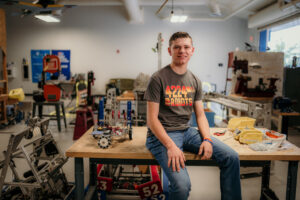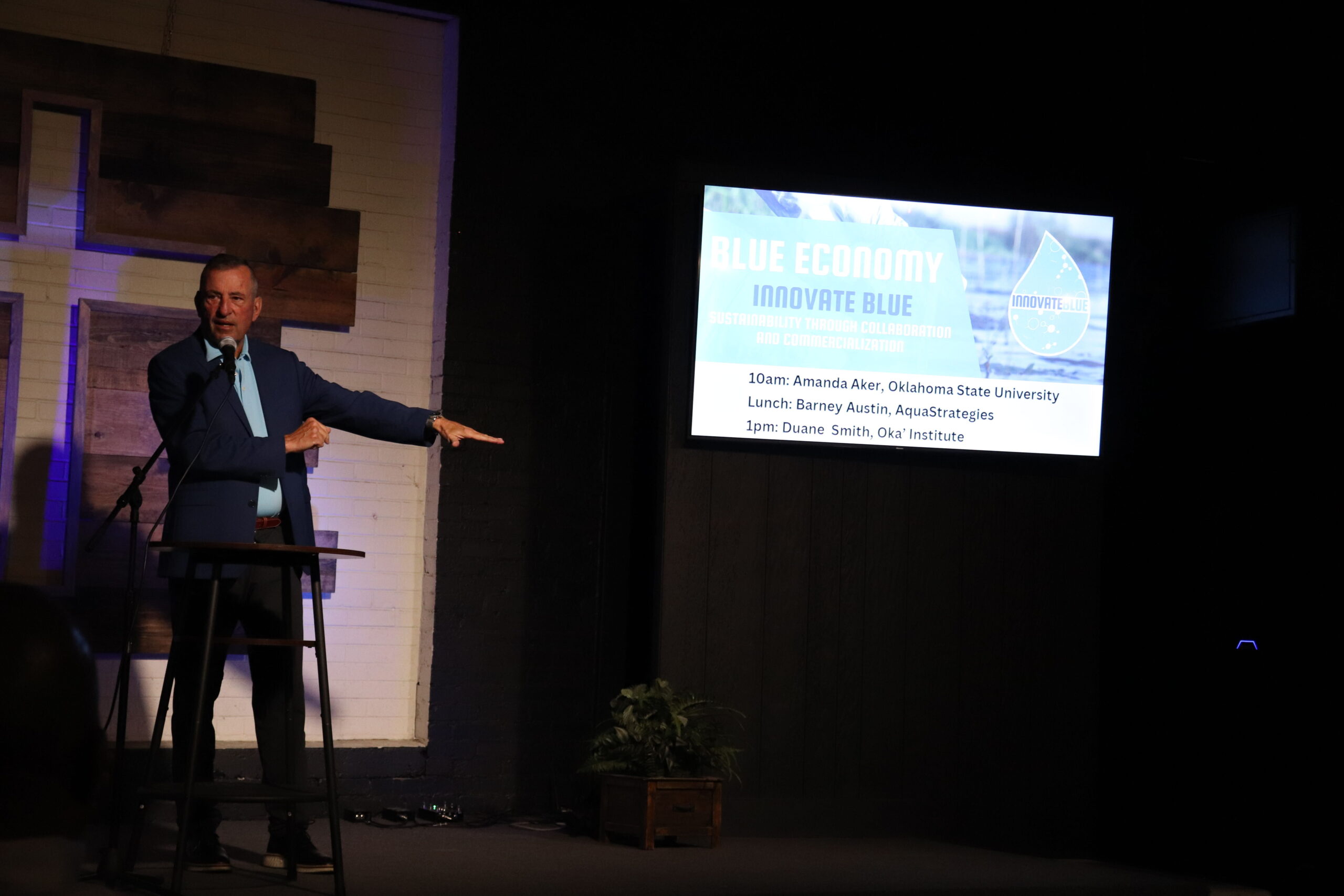
Bridging Academia and Industry: Research Commercialization in Ada
August 16, 2024 by Ada Jobs
By: Sunnie Dawn Baker
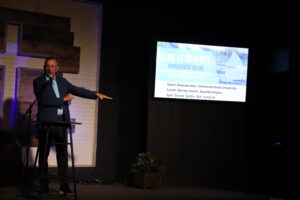 As part of the Conduit Initiative’s strategy to encourage a technology and innovation-based economy, the Ada Jobs Foundation (AJF) partnered with the Chickasaw Nation, the Robert S. Kerr Environmental Research Center, and the Oka’ Institute to host a Research Commercialization Workshop at Goodway Coffee Co. This type of entrepreneurship support is different from the more conventional efforts of AJF. Whereas a typical entrepreneur comes up with an idea and then crafts it into a business, a scientist generates research commercialization from individual innovations or lightbulb moments during research projects. Research commercialization is significant because it helps transform scientific discoveries and innovations into practical products and services, driving economic growth and technological advancement. By bridging the gap between research and industry, it fosters new ventures, creates high-skilled jobs, and attracts investment to regions like Ada, supporting long-term economic development. Jake Cantrell, Conduit Initiative Investment Associate, organized our first Research Commercialization Workshop to encourage this type of venture in our area.
As part of the Conduit Initiative’s strategy to encourage a technology and innovation-based economy, the Ada Jobs Foundation (AJF) partnered with the Chickasaw Nation, the Robert S. Kerr Environmental Research Center, and the Oka’ Institute to host a Research Commercialization Workshop at Goodway Coffee Co. This type of entrepreneurship support is different from the more conventional efforts of AJF. Whereas a typical entrepreneur comes up with an idea and then crafts it into a business, a scientist generates research commercialization from individual innovations or lightbulb moments during research projects. Research commercialization is significant because it helps transform scientific discoveries and innovations into practical products and services, driving economic growth and technological advancement. By bridging the gap between research and industry, it fosters new ventures, creates high-skilled jobs, and attracts investment to regions like Ada, supporting long-term economic development. Jake Cantrell, Conduit Initiative Investment Associate, organized our first Research Commercialization Workshop to encourage this type of venture in our area.
The four-hour event featured three different speakers with plenty of time for questions and discussion following each presentation. Lunch was provided by the Chickasaw Nation. Amanda Aker, a Commercialization Officer and Patent Agent with the Innovation Foundation at Oklahoma State University, spoke about the process of commercializing research. Barney Austin, adjunct instructor at ECU and OSU as well as the President and CEO of AquaStrategies, spoke about how new research and technologies are instrumental in developing and growing his own business. The final speaker was Duane Smith, Director of the Oka’ Institute at ECU, who spoke about the Blue Economy Initiative and the importance of research-led entrepreneurship to our community. The three speakers illustrated a pathway toward a more prosperous community as they progressed from the first steps of recognizing innovation and protecting ideas to forming a business and then how that business can help develop a community.
Aker’s position at OSU has her working closely with researchers as she helps them on the path to commercialization of their ideas. Aker focused her talk on the different ways to protect intellectual property, but also how to identify marketable innovations in the first place. To identify the innovations, she recommends doing a regular “IP Harvest” where there is a roundtable discussion concerning the research to identify possible innovations. Sometimes a basic question like “What problems did you solve?” can prompt this. In this case, the participants might not realize at first that they encountered unique problems while doing their work, but as they talk, they will realize that, through the course of their work, they had to figure out how to work around certain issues; these solutions could be possible innovations. Another idea is to have an “unexpected results” list or to make a note every time there is a “oh that’s cool” moment. Sometimes, during the course of research, unexpected and unintentional findings can become technological innovations worthy of the market.
After Aker, Austin took the stage, talking about the path that led him to water research, consulting, and his own business, AquaStrategies. His consulting business led him to Iraq in 2017 where he gave a series of lectures on water resources and science and how the strategies used in Oklahoma and Texas could improve water quality, and thus the quality of life, in Iraq. While Iraq definitely has challenges when it comes to water, other places have their own as well, and Austin and his team work with many organizations and communities to help mitigate these issues. Whether it is a project to create constructed wetlands southwest of Corpus Christi to clean heavily utilized land or discerning the sediment levels of Wintersmith Lake here in Ada, AquaStrategies uses groundbreaking research technologies to help communities conserve and utilize their water resources in the best possible ways.
Smith concluded the workshop, discussing the future of water technologies and how our community can work together for water conservancy and economic prosperity. Smith sees a bright future for water tech-based entrepreneurs in our area, as long as we can break down our silos and work together. The Blue Economy Model that the Oka’ Institute champions takes into account three major pillars: research, a sustainable community, and land stewardship. While the Chickasaw Nation, ECU, and the City of Ada are all central to these efforts, many others in the community also support this undertaking, providing education, research, and opportunities that could help create a favorable climate for water tech entrepreneurs.
While building a tech economy, it is important to be open to many different avenues and possibilities, including the commercialization of academic research. Cantrell notes, “There is amazing research coming out of our area with a lot of opportunity for researchers to move to the next level and apply it to commercial applications. Our workshops aim to help bridge that gap by providing academically minded researchers with the tools to help explore those options. Ultimately the aim is to create new thriving companies and jobs in our area.” The next commercialization workshop will take place during Oka’ Con in September. Read our newsletter or follow the Ada Jobs Foundation on Facebook or LinkedIn for more information.
Written by
Ada Jobs
You may also interested in:
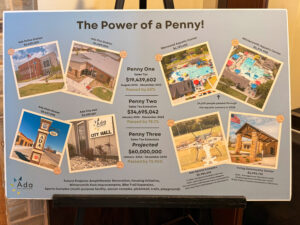
ADA'S GROWTH IN MOTION
STRATEGIC INVESTMENT & A CLEAR PATH FORWARD On February 19th, community members gathered for the City of Ada’s State of the City address, where leadership outlined more than $100 million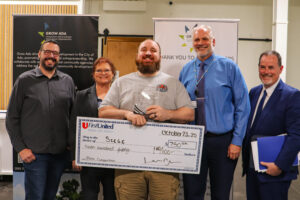
SIEGE AXE LOUNGE'S HIGH-TECH EDGE
BY: CATHLENA SPENCER When you think of axe throwing, you might picture wooden targets and painted bullseyes. Siege Axe Lounge, the 2nd Place winner in the Revenue-Generating category of Grow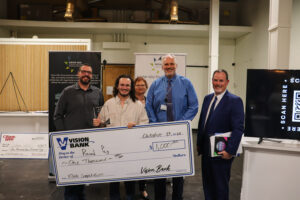
A ROUNDPEG FOR A SQUARE PROBLEM
BY: CATHLENA SPENCER For many small business owners, the hardest part of the job isn’t serving customers- it’s the invisible battle with inventory. Knowing what to reorder, how much, and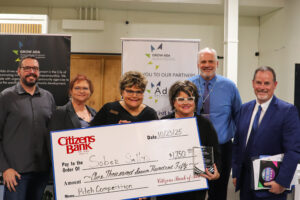
FROM TRAUMA BAY TO TECH STARTUP: HOW TWO HEALTHCARE VETERANS LAUNCHED SOBER SALLY'S TO SAVE LIVES
BY: CATHLENA SPENCER In the world of entrepreneurship, necessity is the mother of invention. For Erin Ogee and Crystal Glass, the necessity was stopping drunk driving, a mission forged from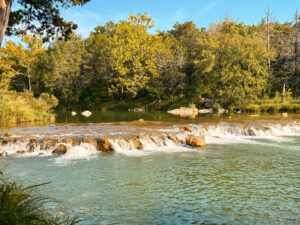
OKA' CAMP: A DAY OF WATER, WORDS, AND WISDOM
WATERSlumber, a desolate mind, trapped with thoughts of what is and what could have been. Awakened, but not by the beauty. A lust for power has gripped the heart of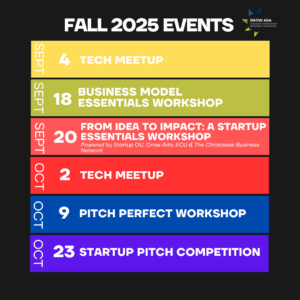
GET READY TO GROW: YOUR GUIDE TO FALL INNOVATION WITH GROW ADA
BY: CATHLENA SPENCER Have you ever wondered how a good idea becomes a great business? This fall, Grow Ada is rolling out a series of events designed to be your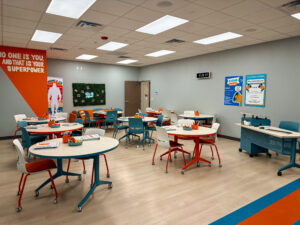
BUILDING FUTURES: WORK READY ADA CELEBRATES ITS FIRST YEAR
BY: CATHLENA SPENCER Just one year ago, Work Ready Ada, a new employment readiness program, was launched in partnership with Pontotoc Technology Center (PTC). The program, funded by Oklahoma Human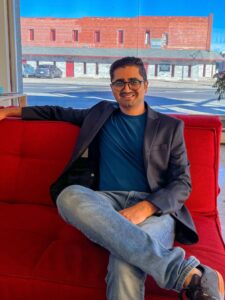
AI IN EDUCATION: A CONVERSATION WITH VINAYAK MITTY
BY: SUNNIE DAWN BAKER One of the areas in technology with the most potential for entrepreneurial growth is Artificial Intelligence (AI). AI is increasingly shaping every part of our lives,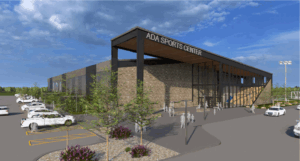
FROM PARKS TO PRODUCTIVITY: THE ECONOMIC IMPACT OF ADA'S QUALITY-OF-LIFE INVESTMENTS
BY: SUNNIE DAWN BAKER Enhancing quality of life is one of the most crucial aspects of developing a local economy. In the 21st century, many people can live and work